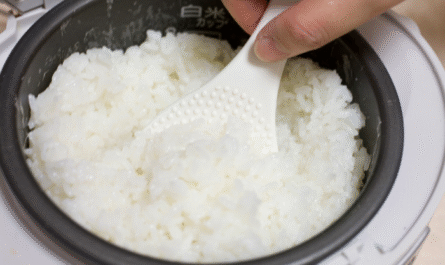In recent years, the interest in black rice has surged due to its potential health benefits, particularly its impact on kidney function. This unique grain, often dubbed as the ‘forbidden rice,’ has captivated the attention of health enthusiasts and researchers alike. In this article, we’ll delve into how black rice can influence kidney function and explore its nutritional profile.

What is Black Rice?
Black rice is a variety of rice that is rich in antioxidants, fiber, and several essential nutrients. Its deep, dark color is attributed to its high anthocyanin content, a powerful antioxidant also found in blueberries and blackberries. This rare form of rice is not only a staple in many Asian cuisines but also gaining popularity worldwide for its health benefits.
Nutritional Profile of Black Rice
Black rice is packed with vitamins and minerals. It is a good source of iron, vitamin E, and several types of B vitamins. Additionally, it contains a significant amount of fiber, which aids in digestion and helps maintain a healthy weight. The presence of anthocyanins makes it particularly beneficial for overall health.
Antioxidant Properties
The high level of antioxidants in black rice helps combat oxidative stress in the body, which can lead to chronic diseases. This is particularly important for maintaining healthy organs, including the kidneys.
How Black Rice Affects Kidney Function
Kidneys play a crucial role in filtering waste from the blood and maintaining overall fluid balance in the body. The antioxidants and anti-inflammatory properties of black rice can positively impact kidney function by reducing inflammation and improving blood flow to these vital organs.
Reducing Inflammation
Inflammation is a common issue that affects kidney health. The anthocyanins and other antioxidants in black rice help reduce inflammation, potentially lowering the risk of kidney-related diseases.
Improving Blood Circulation
Proper blood circulation is essential for optimal kidney function. By improving blood flow and reducing oxidative stress, black rice may support the kidneys in efficiently filtering waste from the body.
Incorporating Black Rice into Your Diet
Introducing black rice into your diet can be both delicious and nutritious. It can be used in a variety of dishes, from sushi to salads and even desserts. For ideas on how to incorporate this superfood into your meals, check out our guide on Italian Cuisine.
Cooking Tips
While cooking black rice, it’s essential to rinse it thoroughly before cooking to remove excess starch. It typically requires more water and a longer cooking time than white rice.
Potential Side Effects
Though black rice is generally safe for consumption, some individuals may experience allergies. For more information, refer to our article on black rice allergy.
Scientific Research and Evidence
Several studies have explored the health benefits of black rice. A study published in ResearchGate highlights its potential as a superfood due to its rich nutrient profile and health benefits.
Research Studies
Current research suggests that the compounds in black rice may help protect against various chronic diseases, including those affecting the kidneys. For more detailed information, visit this study.

FAQs
- Does black rice help improve kidney function? Yes, the antioxidants in black rice may help improve kidney function by reducing inflammation and oxidative stress.
- Is black rice safe for everyone? Generally, yes. However, those with rice allergies should consult a healthcare professional.
- How can I include black rice in my diet? Black rice can be used in various recipes, including sushi, salads, and soups.
In conclusion, incorporating black rice into your diet can provide numerous health benefits, particularly for kidney function. Its rich nutrient profile, coupled with its antioxidant properties, makes it a valuable addition to a balanced diet.
This article contains affiliate links. We may earn a commission at no extra cost to you.




